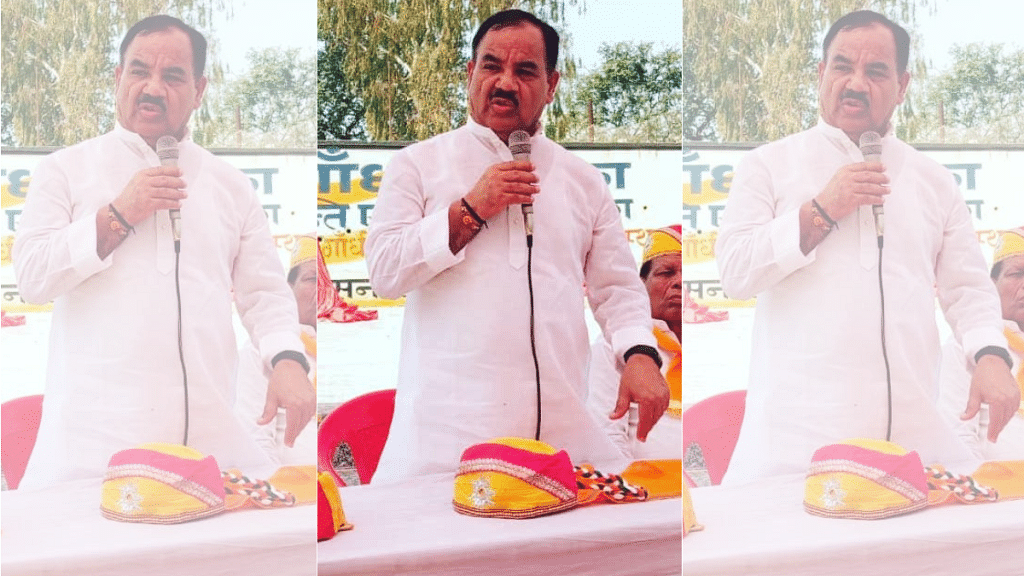New Delhi: The Supreme Court on Wednesday admonished former Uttarakhand forest minister Harak Singh Rawat and divisional forest officer (DFO) Kishan Chand for disregarding the law to facilitate a tiger safari project in Jim Corbett National Park.
The irregularities, it said, included illicit felling of trees on mass-scale in and around the park to create open spaces to “construct buildings on the pretext of promotion of tourism”.
A three-judge bench led by Justice B.R. Gavai said it was “amazed at the audacity of the honourable minister” and the collector in “giving a go-bye to the statutory provisions”.
The critical comments against the duo was based on the findings from a report of the court-appointed Central Empowered Committee (CEC), which called Rawat as the “main architect” of the illegal felling of trees.
While conditionally allowing the tiger safari project in the buffer zone of the Jim Corbett National Park, the bench asserted that it would be for the rehabilitation of tigers — those injured, involved in human-wildlife conflict, and orphaned cubs — which are unfit for rewilding and release into the wild, as specified in clause 9 of the National Tiger Conservation Authority’s (NTCA) guidelines.
The 2019 guidelines that allow sourcing of animals from zoos in safaris would be contrary to the purpose of tiger conservation, it added.
The top court, however, ruled out tiger safari in the core area of Corbett.
“In the present case, it is clear beyond doubt that the then forest minister and…Chand…considered them to be the law unto themselves. They have, in blatant disregard of the law and for commercial purposes, indulged in the illicit felling of trees on a mass scale to construct buildings on the pretext of promotion of tourism. This is a classic case that shows how the politicians and the bureaucrats have thrown the public trust doctrine in the dustbin,” it said.
Chand, the bench said, was posted even though the authorities had recommended against it due to his past involvement in serious irregularities.
It was the forest minister who inserted Chand’s name in the proposal relating to transfer and postings at the sensitive post. The minister continued to protect him even after the NTCA and the Secretary, forest, flagged his involvement in serious irregularities and advised his suspension, the court said.
The minister not only overruled the recommendation for suspension but also justified his proposed posting to the Lansdowne Division, it added. Chand was suspended only after the minister demitted his office.
The bench frowned upon the “nexus between a politician and a forest officer,” which, it said, has resulted in “causing heavy damage to the environment for some political and commercial gain”.
Since the CBI is already probing the case, the bench held back itself from commenting further on the matter. The CBI took up the case following an order by the Uttarakhand High Court in September 2023.
The SC kept the matter pending so that it can monitor the probe and also asked the CBI to “submit a report within a period of three months from today”.
It further directed the state to complete the disciplinary proceedings against the “delinquent officers as expeditiously as possible, preferably within a period of six months from today.”
The bench also sought a status report from the Uttarakhand government within three months.
The order came on a plea filed by advocate Gaurav Kumar Bansal, who brought to the top court’s notice the illegal felling of trees carried out to set up the safari at Gujjar Sot, Pakhrau Block of the reserve.
Bansal contended that the activities also cause “irreversible damage to the biological diversity, ecology, flora and fauna in the Corbett landscape”.
In its order, the SC directed the Centre to constitute a committee, which will assess the damage caused by illegal uprooting of trees and suggest measures “for restoration of the damaged area”.
The panel’s remit will include looking into the possibility of having tiger safaris in the buffer zone of other national parks.
As for the expenditure that would be incurred in the restoration project, the bench directed the state to recover it from the delinquent officers who are found responsible for undertaking the illegal activity.
(Edited by Tony Rai)
Also Read: Tiger conservation body seeks clarity on SC stay on construction within reserves, national parks
